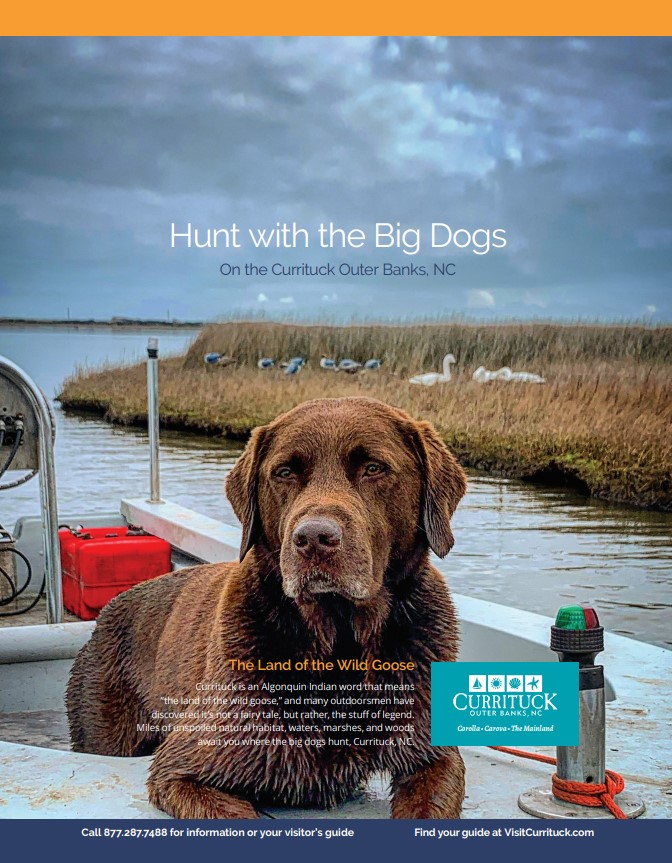Updated: August 20, 2021
Renowned for its breathtaking sunsets and views, Currituck County is also famous for its incredible hunting opportunities.
From hunting ducks to swans and deer, fall is a wonderful season to spend some time immersed in nature.
“Currituck has a lot of open land and a lot of great places for wildlife,” said J. Chris Turner, a district biologist for the North Carolina Wildlife Commission. “I couldn’t think of a better part of the state to come to, if you enjoy hunting and fishing.”
If you plan on hunting in Currituck County, make sure you have any necessary licenses and permits as well as accurate information on the laws that govern hunting in North Carolina and Currituck County. Information is available online through the North Carolina Wildlife Resources Commission.
As part of the Atlantic Flyway, thousands of waterfowl, including tundra swans, migrate to this part of North Carolina to spend winter. Migratory game birds include ducks, geese, sea ducks, mergansers and coots. In part of September, teal are also an option on the coast east of Highway 17.
It’s important that you check with the North Carolina Wildlife Commission for exact season dates, shooting hours and bag limits, which often vary by species. Waterfowl hunters must also be familiar with other local rules in Currituck County as per the Currituck County Game Commission.
To go duck hunting, you need a North Carolina hunting license from the state and a federal duck stamp.
“When hunting migratory game birds, including waterfowl, you can’t shoot after sunset, but you can shoot a half-hour before sunrise. Also, waterfowl hunters must use non-toxic shot,” Turner said. “People really have to do their homework to make sure they understand and follow what the law calls for when they’re hunting.
North Carolina is one of the few states nationwide to allow hunting of tundra swans, however, hunters must apply and hold a special tundra swan permit.
“Nobody can legally harvest a tundra swan in North Carolina unless they’re drawn for a swan permit,” Turner said.
Currituck National Wildlife Refuge is also open to waterfowl and big game – deer and feral pig — hunting by permit only. Waterfowl hunting is only allowed on Fridays and Saturdays from November through January. Access is by boat only.
For detailed information, check with the Refuge’s hunting regulations.
Hunting in Currituck County dates back centuries to when the string of barrier islands here were inhabited by the Algonkian Indians. They called the area “Coratank,” which translates to “Land of the Wild Goose,” according to the U.S. Fish & Wildlife Service.
In 1668, the governor of colonial North Carolina established Currituck County. By the early 1900s, wealthy sportsmen started building lavish hunting clubs in Currituck. According to the U.S. Fish & Wildlife Service, these included the Swan Island Club, the Whalehead Club in Corolla, the Currituck Gunning and Fishing Club, the Monkey Island Hunt Club and Joseph Knapp’s estate on Mackay Island.
While the laws and permits have changed considerably since then, the pristine nature of Currituck County has not.
Federal wildlife officials and biologists have worked hard to preserve the area’s habitat and ecosystem while creating new hunting opportunities for locals and visitors. As a result, Currituck County remains one of the most incredible places to experience hunting and the outdoors.
“The beginning of fall is certainly a special time for hunters,” Turner said.

